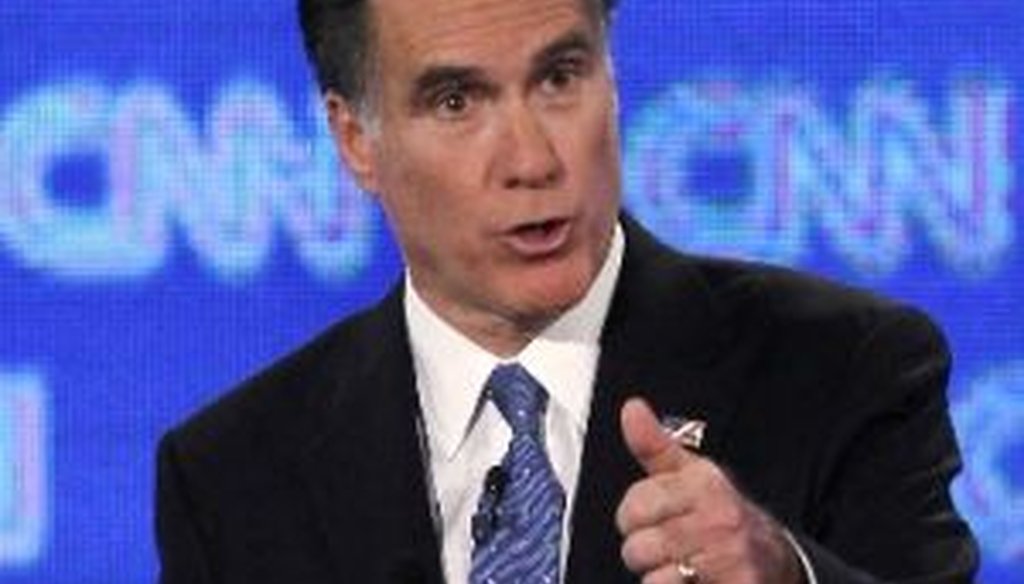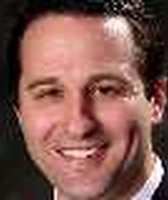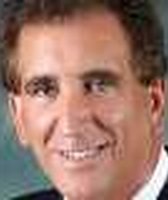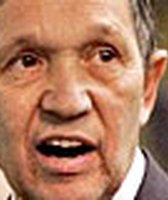Get PolitiFact in your inbox.

Former Massachusetts Gov. Mitt Romney participates in a debate for GOP presidential candidates Jan. 26 in Jacksonville, Fla.
As the Republican presidential candidates have slugged it out in pursuit of delegates and their party’s nomination, former Massachusetts Gov. Mitt Romney has had to fend off challenges to his record as a conservative, including a series of charges from Newt Gingrich.
In one recent debate, Gingrich told a crowd in Jacksonville, Fla., "I think it’s reasonable to say, and I think [Romney] said it fairly, I am vastly closer to [Ronald] Reagan.
"In that period, the governor was an independent business person. In '92 he was donating to the Democrats for Congress and voted for Paul Tsongas in the Democratic primary."
Romney countered, "I've never voted for a Democrat when there was a Republican on the ballot."
Ohioans are likely to hear more of those kinds of attacks on Romney over the next month as the Republican candidates move through the Buckeye State, wooing voters for the Super Tuesday primary on March 6.
But what about Romney's response here? We looked at Romney's claim and rated it Half True.
A key factor lies in the rules governing how independents in Massachusetts vote in primary elections and the choices Romney made.
Romney acknowledges voting in the Democratic primary in 1992. And when Romney was handed the Democratic ballot, it's true that there was no Republican on it. The Republican ballot was separate. So, by this interpretation, Romney is correct that there was no "Republican on the ballot."
But Romney, as an independent, could choose which party's primary he voted in, and he made an affirmative choice to vote in the Democratic primary, not the Republican primary.
Our Sources
See related PolitiFact item















































